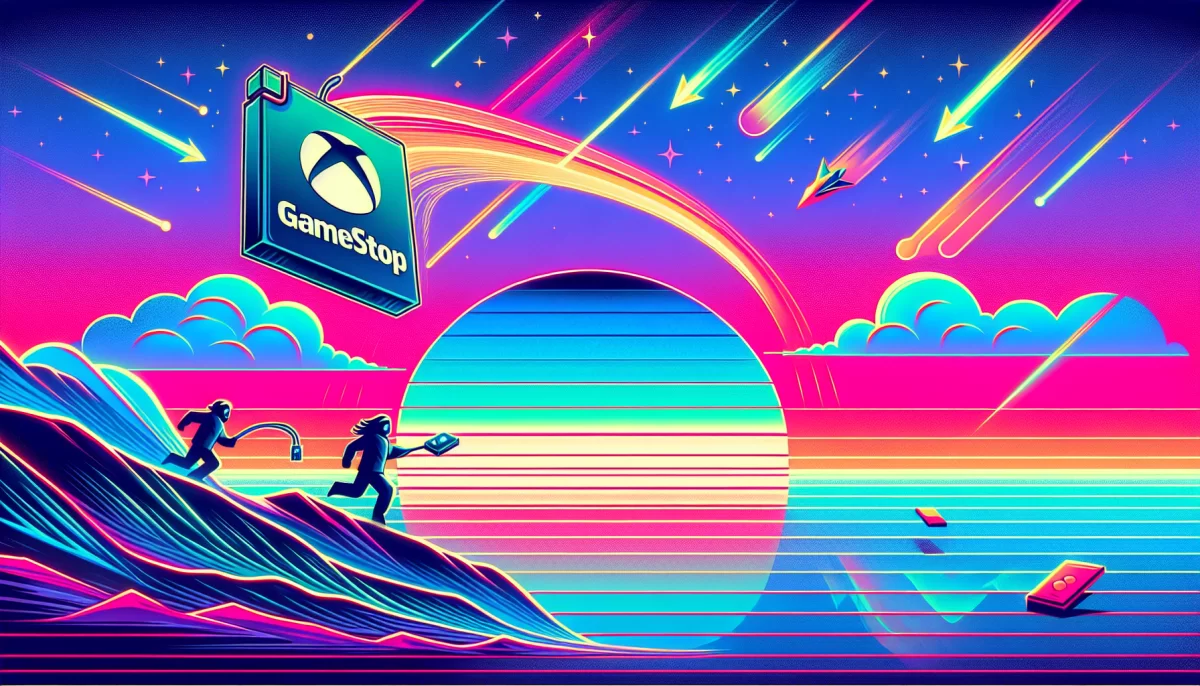
GameStop Defies Xbox Game Pass Ultimate Price Hike, Sticks to $20
In a bold move, GameStop has announced it will continue selling Xbox Game Pass Ultimate subscriptions for $19.99 per month, despite Microsoft’s recent decision to increase the official price to $29.99. This decision impacts both in-store and online sales, highlighting GameStop’s unique stance amid a controversial pricing change.
Background: The Xbox Game Pass Ultimate Price Increase
Microsoft recently raised the price of its Xbox Game Pass Ultimate subscription by 50%, increasing the monthly fee from $19.99 to $29.99. This hike also extended to the PC version of Game Pass, rising from $11.99 to $16.49 per month. The price increase has sparked significant pushback from the gaming community and industry observers alike, as it represents a sizable jump in subscription costs.
GameStop’s Reaction: Commitment to the Original Price
GameStop responded swiftly to the price hike announcement, first with a humorous meme that encapsulated gamers’ frustrations, and then with a direct firm statement:
“We will continue to sell Xbox Game Pass Ultimate for $19.99/month in-store and online.”
This implies that GameStop will maintain the pre-increase pricing indefinitely, aiming to preserve value for customers despite Microsoft’s new rate.
What Does This Mean for Consumers and Retailers?
- Affordability for Gamers: With GameStop holding the line against the higher price, consumers can still access Xbox Game Pass Ultimate at the previous subscription cost, benefiting budget-conscious players.
- Retailer Leverage and Pricing Policies: The move introduces questions regarding Microsoft’s minimum advertised price (MAP) policies and whether retailers have the discretion to deviate from the list price on digital services.
- Market Response and Potential Consequences: Such defiance could provoke official reactions from Microsoft, ranging from revised terms of sale to adjustments in retailer agreements.
Legal and Industry Implications
The legality of GameStop’s pricing strategy depends largely on Microsoft’s enforcement of MAP for Xbox Game Pass Ultimate subscriptions. Typically, digital subscription services are sold directly by the provider or authorized resellers under predefined pricing terms. GameStop’s approach suggests either a loophole in those contracts or a strategic test of Microsoft’s response.
Understanding MAP and reseller agreements is critical:
- Minimum Advertised Price (MAP): Defines the lowest price a retailer can advertise a product, intended to protect brand value and retailer margins.
- Reseller Agreements: Contractual terms that govern how and at what price retailers can sell products or subscriptions.
- Potential Enforcement Actions: Violating MAP can lead to supply restrictions or legal disputes, impacting GameStop’s ability to continue this pricing.
Industry experts note that while physical products typically have clear MAP guidelines, digital products like subscription plans may have more complex or less stringent policies, particularly if sold as code or gift cards.
Wider Industry Context and Consumer Trends
GamePass Ultimate is a key player in the subscription gaming landscape, competing against services like PlayStation Plus and Nintendo Switch Online. Microsoft’s price hike reflects a broader trend of rising subscription costs across entertainment and gaming sectors, driven by increasing content libraries and operational costs.
However, consumer backlash to elevated subscription fees has been substantial—recent data indicates approximately 20% of Xbox Game Pass users considered canceling their subscriptions following the increase, according to a survey by Digital Foundry.
GameStop’s decision to maintain the original pricing aligns with retailers’ efforts to retain customers amid inflationary pressures and evolving market dynamics.
Key Points Summary
- Microsoft increased Xbox Game Pass Ultimate from $19.99 to $29.99 monthly in late 2025.
- GameStop publicly declared it will continue selling subscriptions at $19.99, unbending to the price hike.
- Legal legitimacy depends on Microsoft’s enforcement of minimum advertised prices and reseller policies.
- Service affordability remains a critical factor for gamers facing rising costs across subscription entertainment.
- Retailers may leverage such moves to differentiate themselves and attract price-sensitive customers.
Conclusion
GameStop’s decision to ignore the Xbox Game Pass Ultimate price increase represents a rare case of retailer pushback against a major digital subscription price hike. While its long-term sustainability relies on Microsoft’s contractual terms and business strategies, this move highlights growing tensions between pricing power holders and consumer-facing retailers.
As subscription services become central to gaming ecosystems, pricing strategies—and the pushback against them—will significantly influence consumer behavior, market competition, and industry economics in the coming years.
Image credit: Microsoft


